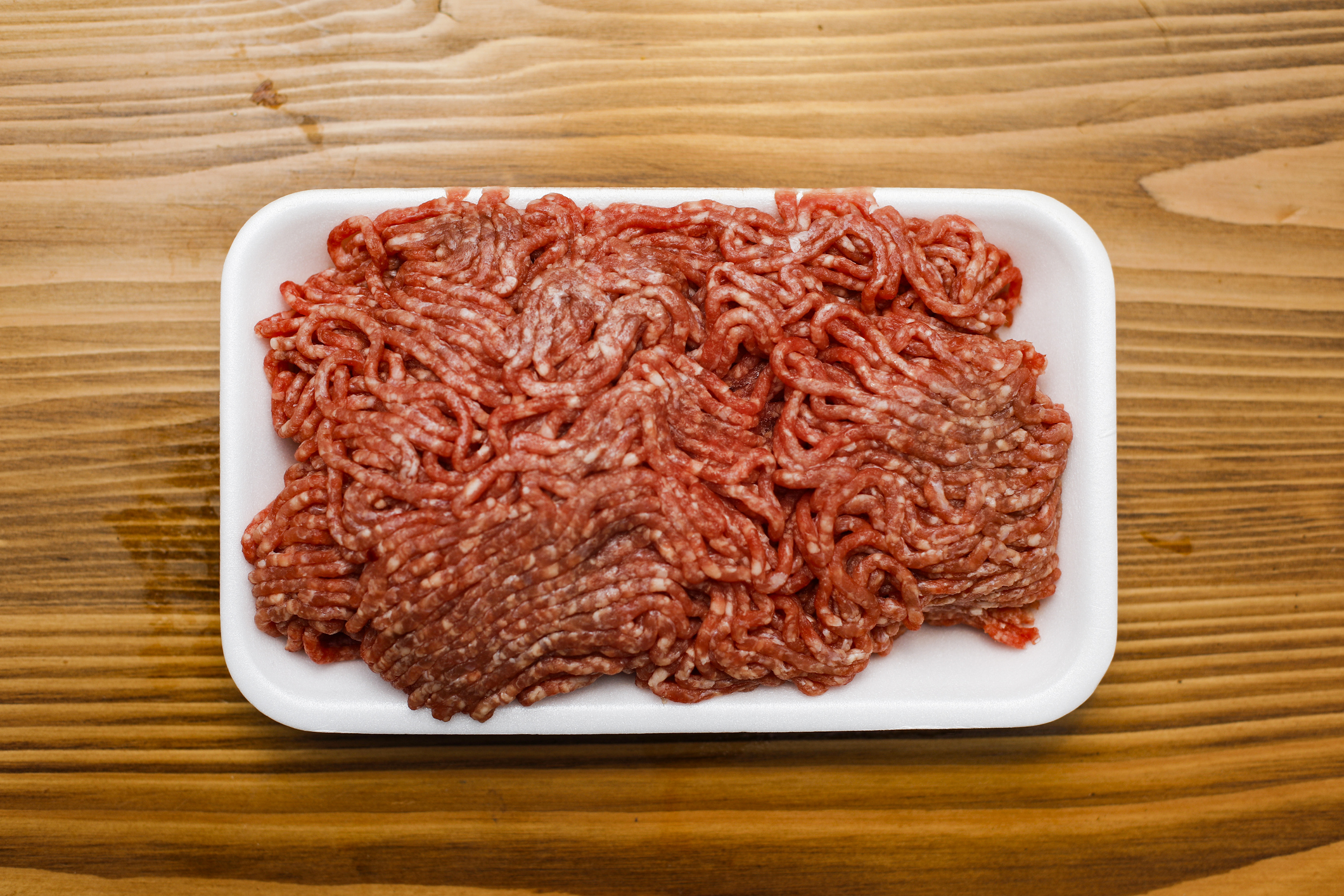Over 150,000 pounds of ground beef recalled nationwide after E. coli contamination
At least 15 people have fallen sick as a result of eating contaminated ground beef, and health officials warn that the products may still be lurking in restaurant refrigerators.

Approximately 167,277 pounds of ground beef products have been recalled across the United States due to potential contamination with E. coli, the U.S. Department of Agriculture's Food Safety and Inspection Service (FSIS) announced in a statement on Nov. 20.
Officials have so far identified 15 people sickened in the outbreak, but the true number may be higher. Additionally, the FSIS has expressed concerns that some restaurants may still have the affected products in their fridges and freezers.
Restaurants should not serve the products and should instead throw them away or return them to the place of purchase, the FSIS instructed.
The recall was initiated by Wolverine Packing Co., of Detroit after the Minnesota Department of Agriculture notified FSIS of a cluster of illnesses affecting people who ate ground beef. Working with the Minnesota officials, FSIS uncovered a link to Wolverine Packing. Then, a sample of ground beef from the company was found to contain the bacterium E. coli, or Escherichia coli.
"E. coli O157:H7 is a potentially deadly bacterium that can cause dehydration, bloody diarrhea and abdominal cramps 2 to 8 days (3 to 4 days, on average) after exposure," the FSIS said in a statement. Some types of E. coli live in the body without causing harm, but E. coli O157:H7 produces a toxin that can wreak havoc in the intestines.
Ground beef products are particularly vulnerable to E. coli contamination because of the way they are produced.
"When cattle are slaughtered and processed, E. coli O157:H7 bacteria in their intestines can get on the meat," a spokesperson from Wolverine Packing Co. told Live Science in an email. "Ground beef combines meat from many different animals [meaning multiple cows], increasing the risk of contamination."
Sign up for the Live Science daily newsletter now
Get the world’s most fascinating discoveries delivered straight to your inbox.
Related: 39 sickened, 15 hospitalized in E. coli outbreak linked to organic carrots
Most people exposed to E. coli will recover within a week, but the infections can be severe, and even fatal, among young children, older adults, and those with weakened immune systems. In severe cases, patients can develop a rare but serious condition called hemolytic uremic syndrome (HUS), which is marked by easy bruising, reduced urine production and loss of color in the skin. HUS can lead to kidney failure and death.
"Persons who experience these symptoms [of HUS] should seek emergency medical care immediately," the FSIS said.
The products affected by the current recall are marked with the establishment number "EST. 2574B" within the USDA mark of inspection. The fresh products have a "use by" date of Nov. 14, 2024, and the frozen products have a production date of Oct. 22, 2024. The full list of affected products and their labels can be found on the USDA website.
In its statement, the FSIS has advised consumers to only eat ground beef that has been cooked to a temperature of 160 degrees Fahrenheit (71 degrees Celsius) to kill any harmful bacteria, including E. coli. Anyone concerned about a potential illness caused by the bacteria should contact their health care provider.
"Wolverine has notified all customers that received product[s] encompassed by the recall," the Wolverine spokesperson told Live Science. "We are also conducting an intensive internal audit to fully review suppliers and processes in place, including rigorous quality control measures, to maintain the highest standards of production."
"As a third-generation, family-owned and operated company in business for nearly 90 years, we are committed to food and consumer safety. That is our highest priority," the spokesperson added.
Wolverine Packing Company previously recalled approximately 1.8 million pounds of ground beef in 2014, when its products were found to be contaminated with E. coli O157:H7.
Disclaimer
This article is for informational purposes only and is not meant to offer medical advice.
Ever wonder why some people build muscle more easily than others or why freckles come out in the sun? Send us your questions about how the human body works to community@livescience.com with the subject line "Health Desk Q," and you may see your question answered on the website!

Pandora is the trending news editor at Live Science. She is also a science presenter and previously worked as Senior Science and Health Reporter at Newsweek. Pandora holds a Biological Sciences degree from the University of Oxford, where she specialised in biochemistry and molecular biology.
Flu: Facts about seasonal influenza and bird flu
What is hantavirus? The rare but deadly respiratory illness spread by rodents









